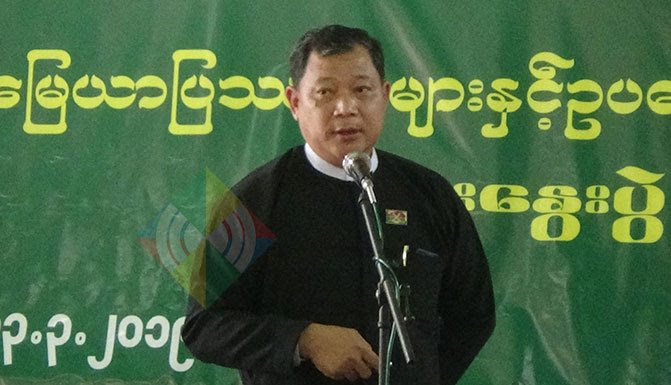Ethnic people are likely to lose their farmland,’ says one Waingmaw Township lawyer.
Representatives of Kachin political parties held a discussion on land issues in Burma on Wednesday in Myitkyina, highlighting multiple sections of the Vacant, Fallow and Virgin (VFV) land management law that they would like to see changed.
The meeting was held at the YMCA hall in the Kachin State capital on March 13, the day after the deadline for land to be registered in accordance with the VFV law. The statute has been widely criticized for failing to recognize customary land ownership, and deeming large tracts of community land “vacant,” particularly in ethnic states.
Dr. Kawn La, chairperson of the Kachin National Congress, identified six areas of the VFV law that would need to be changed for it to be considered fair. These included sections on international and domestic investment and farmland. He urged civil society organizations and locals to cooperate to push for these changes to the land law.
The VFV land management law was amended on September 11, 2018, giving six months to people to register their land in accordance with the statute. Failing to do so and working on unregistered land could lead to two-year prison sentences, fines of 500,000 kyat (US$330) and/or land seizure. This registration period concluded on Monday.
Lawyer Gannes, who lives in Waingmaw Township, told KNG that government representatives had not explained the VFV law sufficiently to the public, and that it fails to take into account the problems faced by communities in the ethnic states.
“In my opinion, farmland will disappear under this new land management law. At the same time, businessmen’s buildings will appear,” he said. “Ethnic people own their land by inheriting them from their ancestors. They don’t know how to apply to own their lands with this new land law. They don’t know they must have a tax bill for their farmland.”
Of concern is that foreign investment is increasing in Kachin State, Gannes said, which could contribute to further conflict between farmers and investment companies.
“Ethnic people are likely to lose their farmland,” he said.
Of those who stand to be dispossessed are landowners among the 100,000 internally displaced people in Kachin State, who have sought refuge in camps due to ongoing armed conflict between the Burma Army and the Kachin Independence Army.

